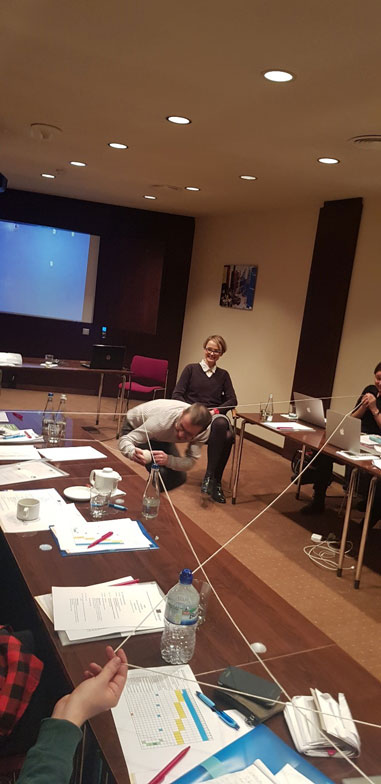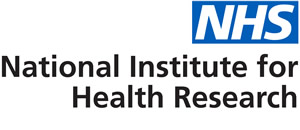
1. SBRI: intelligent data to transform local council service delivery
This Small Business Research Initiative (SBRI) competition is funded by the GovTech Catalyst and is sponsored by Durham County Council and Blaenau Gwent County Borough Council.
This competition looks at 2 specific data-gathering techniques in local council services:
1.‘Boots on the ground’: enabling residents to collect and report accurate data about public assets, such as potholes and street lighting, to the local council.
2.‘Eyes on the street’: using local council vehicles to collect and report data as they travel around the borough.
Summary :
Call opens : 24 September 2018
Call closes : 31 October 2018
Available funding : up to £50,000 (including VAT)
Project start date : by 7 Feb 2019
Please see this link for more information about this call.
2. Call for Carbon Capture and Utilisation Demonstration
As part of the government’s Clean Growth Strategy BEIS has allocated up to £20 million to design and construct carbon capture and utilisation (CCU) demonstration projects. This programme is designed to encourage industrial sites to capture carbon dioxide which could then be used in industrial applications, while enabling learning and development of capture technologies at an intermediate scale, so reducing costs and risks.
The overall aims of the CCU demonstration programme are:
- to demonstrate carbon capture and utilisation at a number of key industrial sites in the UK
- to demonstrate and accelerate cost reductions in carbon capture technology in the order of 20 to 45%, i.e. £10-20/MWh
- to encourage a project pipeline of follow-on CCU projects that will help less mature, but more novel technology to be demonstrated at scale; and
- to improve understanding of the cost and performance of carbon capture technology
- to de-risk the capture technology.
The programme is in 3 phases:
- Phase 1 focuses on initial scoping study for an engineering supplier to work on BEIS’ behalf with potential host sites, carbon dioxide users and technology suppliers to produce site-specific cost estimates for deploying CCU at UK industrial sites. Wood.Plc successfully bid for Phase 1
- Phase 2 will fund projects to conduct design studies for constructing CCUequipment at UK host sites
- Phase 3 will fund projects to construct and demonstrate CCU
Summary :
Call closes : 11 November 2018 (Applicants must complete the application forms on this link and submit by email to Industry.Innovation@beis.gov.uk by Sunday 11 November 2018.)
Available funding : up to £5million
Project duration : up to 24 months
Project dates : finish by 31 March 2021
Please see this link for more information about this call.
3. Open grant funding competition: round 3
Up to £20million investment will be made by Innovate UK in the best cutting-edge or disruptive ideas with a view to commercialisation.
All proposals must be business focused, and can come from any area of technology, science or engineering, including arts, design, media or creative industries.
Summary :
Call opens : 24 September 2018
Call closes : 14 November 2018
Available funding : between £25,000 and £500,000
Project duration : Between 19 and 36 months
Project dates : start by 1 April 2019 and end by 1 April 2022
Please see this link for more information about this call.
4. UK Aerospace Research and Technology Programme: fast-track collaborative R&D EoI
UK organisations can apply for a share of up to £8 million to carry out collaborative R&D, collaborative fast-track and feasibility projects that enhance the UK’s position in civil aerospace.
To be eligible for funding you must:
- be a UK based business, academic organisation, charity, public sector organisation or research and technology organisation (RTO)
- plan to carry out an aerospace research or technology development project in the UK
- address the specific requirements of the UK Aerospace Technology Strategy, ‘Raising Ambition’
- sign up to the Aerospace Technology Institute (ATI) framework agreement
- work in collaboration with other organisations to develop proposals and deliver projects
To lead a project you must:
To collaborate you must be a:
- business
- research organisation
- public sector organisation
- charity
Summary :
Call opens : 24 September 2018
Call closes : 5 December 2018
Available funding : between £425,000 to £1million
Project duration : Between 12 and 24 months
Project dates : start by August 2019 and end by August 2021
Please see this link for more information about this call.
5. IDP 15: the road to zero emission vehicles, large R&D
Up to £4million is available for UK businesses to apply for to research and develop technologies that accelerate the transition to zero emmision vehicles.
To be eligible you must:
- be a UK based business, academic organisation, charity, public sector organisation or research and technology organisation (RTO)
- carry out your project work in the UK
- intend to exploit the results from or in the UK
- work in collaboration with other businesses, research organisations or third-sector organisations
To lead a project you must be a UK based business, of any size.
A separate £2 million is available for feasibility study projects and a further £16 million to support proportionality smaller collaborative R&D projects.
Summary :
Call closes : 6 December 2018
Available funding : up to £4million
Project duration : Between 12 and 36 months
Project dates : start by June 2019 and end by June 2022
Please see this link for more information about this call.





















 The ESRC has announced funding opportunity for a new phase of its National Centre for Research Methods (NCRM), which is an exciting opportunity for a team to develop and deliver a strategy for methods training and capacity-building in the social sciences. The team will be responsible for :
The ESRC has announced funding opportunity for a new phase of its National Centre for Research Methods (NCRM), which is an exciting opportunity for a team to develop and deliver a strategy for methods training and capacity-building in the social sciences. The team will be responsible for :










 Second NIHR MIHERC meeting in Bournemouth this week
Second NIHR MIHERC meeting in Bournemouth this week Dr. Ashraf cited on ‘Modest Fashion’ in The Guardian
Dr. Ashraf cited on ‘Modest Fashion’ in The Guardian NIHR-funded research launches website
NIHR-funded research launches website MSCA Postdoctoral Fellowships 2025 Call
MSCA Postdoctoral Fellowships 2025 Call ERC Advanced Grant 2025 Webinar
ERC Advanced Grant 2025 Webinar Horizon Europe Work Programme 2025 Published
Horizon Europe Work Programme 2025 Published Horizon Europe 2025 Work Programme pre-Published
Horizon Europe 2025 Work Programme pre-Published Update on UKRO services
Update on UKRO services European research project exploring use of ‘virtual twins’ to better manage metabolic associated fatty liver disease
European research project exploring use of ‘virtual twins’ to better manage metabolic associated fatty liver disease